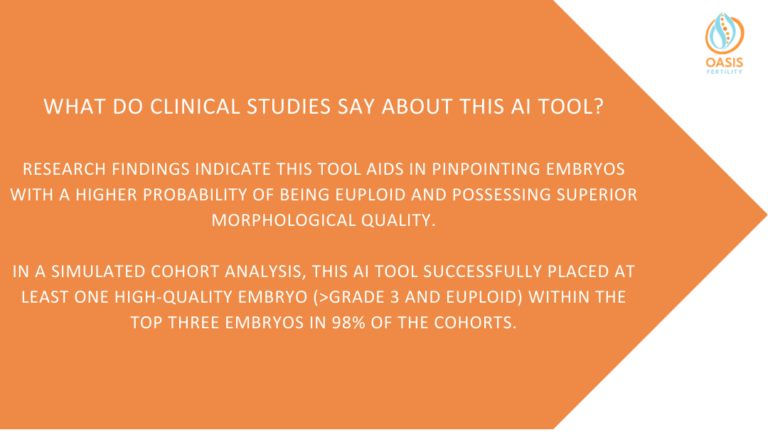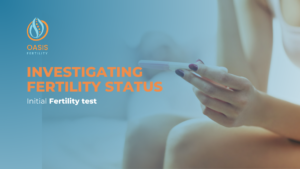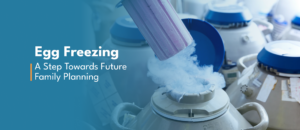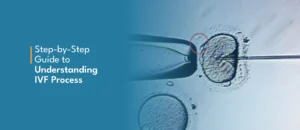The Key Traits of Highest Quality Embryo for a Successful Pregnancy

In the intricate process of conception and pregnancy, the role of the embryo cannot be overstated—it’s the fundamental building block upon which the entire journey hinges.
At Oasis Fertility Centre, we understand that the traits and role of these embryos are paramount in orchestrating the journey to a successful pregnancy. These tiny wonders, each a unique combination of genes, hold the potential for life.
But how do we identify the embryos with the greatest chance of implantation and a healthy pregnancy?
Thanks to the exceptional advancement in the AI world!
Our unique partnership with Life Whisperers empowers individuals and couples to analyze a multitude of complex factors within each embryo. We make optimal use of this technological power of AI to elevate our embryo assessment techniques to unprecedented levels of accuracy.
By combining this technological precision and our team’s expertise, we navigate the trivia of embryonic development, recognizing the significance of attributes such as cell division rate, morphology, and genetic integrity.
What is an Embryo?
Embryos: The Building Blocks of Life
An Embryo is the early stage of development following fertilization, consisting of a ball of cells called a blastocyst. During implantation, which typically occurs around 6-10 days after fertilization, the blastocyst attaches to the lining of the uterus, known as the endometrium. This process is essential for pregnancy to occur, as it enables the embryo to receive nourishment and support from the mother’s body.
Embryo Implantation involves a series of intricate interactions between the blastocyst and the endometrium, facilitated by specialized molecules and signaling pathways. Successful implantation sets the stage for embryonic development and ultimately leads to the formation of the placenta, ensuring the proper growth and viability of the developing fetus.
Key Traits of a High-Quality Embryo
Here are some essential characteristics of the highest-quality embryos:
- Optimal Morphology: High-quality embryos exhibit uniform cell division, symmetrical development, and minimal fragmentation. They typically have a compact, well-defined cellular structure, indicating healthy growth and development.
- Euploidy: Euploidy refers to the presence of the correct number of chromosomes in an embryo. Chromosomal abnormalities can significantly impact the embryo’s viability and increase the risk of implantation failure or pregnancy loss. The highest quality embryos are euploid, ensuring genetic integrity and enhancing the chances of a successful pregnancy.
- Developmental Stage: Embryos progress through various developmental stages during the IVF process. The highest quality embryos reach the blastocyst stage, characterized by the formation of an inner cell mass and trophectoderm. Blastocyst-stage embryos have demonstrated superior implantation potential compared to embryos at earlier stages of development.
- Viability and Viability Markers: Certain viability markers, such as mitochondrial activity and cell symmetry, can indicate the health and viability of an embryo. High-quality embryos exhibit robust mitochondrial function and balanced cell division, signifying their capacity for successful implantation and subsequent development.
- Implantation Potential: Ultimately, the highest quality embryos possess the inherent ability to implant and establish a viable pregnancy within the uterine lining. They exhibit favorable characteristics that facilitate interaction with the endometrium and promote successful attachment and implantation.
- Embryo Grading: Fertility specialists often utilize embryo grading systems to assess morphology and developmental stage objectively. Grading criteria may include factors such as cell number, fragmentation, symmetry, and blastocyst expansion. High-quality embryos receive favorable grades based on these parameters, indicating their potential for successful pregnancy outcomes.
As mentioned above, in recent years, advancements in technology, such as artificial intelligence (AI) algorithms and time-lapse imaging, have further enhanced the identification and selection of the highest-quality embryos.
The Importance of Highest Quality Embryos
The quality of the embryo plays a pivotal role in assisted reproductive treatments and paves the lucrative path for successful vitro fertilization (IVF) treatment and intracytoplasmic sperm injection (ICSI). High-quality embryos exhibit robust cellular morphology, optimal developmental potential, and genetic normalcy (euploidy), increasing the likelihood of successful implantation and a healthy pregnancy.
Furthermore, embryos of superior quality are associated with improved rates of implantation and live births. Enhanced efficiencies empower embryologists and physicians to cater to a larger number of high-potential new cycle patients, leading to heightened patient satisfaction, increased demand, and enhanced patient throughput, both in terms of new cycles and subsequent transfers.
At Oasis Fertility Centre, our commitment to excellence drives us to prioritize the selection of the highest quality embryos, maximizing the chances of achieving desired outcomes for our patients.
Harnessing AI for Embryo Assessment
In our pursuit of precision and innovation, Oasis Fertility Centre has partnered with Life Whisperer’s cutting-edge artificial intelligence (AI) technology to revolutionize embryo assessment. By leveraging AI algorithms trained on vast datasets of embryo images, we can accurately evaluate key morphological features associated with embryo quality. This advanced technology enables us to identify embryos with the highest developmental potential, empowering our team to make informed decisions and optimize treatment outcomes for our patients.
What does this AI assessment tool do?
Utilizing artificial intelligence, this non-invasive evaluation technique assesses the probability of the embryo possessing genetic normalcy (euploidy) and exhibiting superior morphological characteristics, all from a single static image of the embryo.
These advanced AI algorithms, specifically designed to analyze a multitude of complex factors within each embryo. These factors, invisible to the naked eye, can provide valuable insights into the embryo’s developmental potential.

Be Sure Before You Begin!
At Oasis Fertility Centre, we understand the profound hope and anticipation accompanying the journey towards parenthood. The foundation of a successful pregnancy often lies in the selection of the healthiest embryo.
By combining this innovative technology with our team’s expertise, we strive to identify the embryos most likely to blossom into a healthy pregnancy, bringing your dreams of parenthood one step closer to reality.
We are dedicated to providing our patients with the most advanced technologies and personalized care to enhance their chances of conception.
We are right here to guide you through!
Top-quality embryos typically exhibit characteristics such as regular cell division, proper cell number, and minimal fragmentation. They are also often euploid, meaning they have the correct number of chromosomes, which is crucial for successful implantation and pregnancy.
The quality of an embryo for successful IVF is determined by various factors, including morphology (appearance), genetic integrity, and developmental stage. Generally, embryos with good morphology, appropriate cell division, and euploidy have a higher chance of successful implantation and pregnancy.
Stronger embryos are typically those with optimal morphology, indicating healthy cell division and minimal fragmentation. Additionally, embryos that are euploid, meaning they have the correct number of chromosomes, are considered stronger as they have a higher likelihood of successful implantation and development.
The success of embryo transfer depends on various factors, including the quality of the embryo, the receptivity of the uterine lining, and the overall health of the patient. Generally, transferring a euploid embryo with good morphology into a receptive uterus offers the highest chance of success in IVF. However, the success rates can vary depending on individual circumstances and medical factors.









